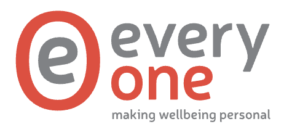What we were asked to do
Led by the University of Lincoln School of Psychology, supported by Every-One, working closely with Lincolnshire Integrated Care Board, this one-year National Institute for Health & Care Research funded project works with organisations, groups, and residents in Lincolnshire to understand what future Lincolnshire mental health research priorities need to be.
Findings from this research project will feed into a significant funding bid to the National Institute for Health & Care Research in May 2026, enabling prioritised research to be actioned.
This project, led by Professor Nima Moghaddam and the wider partnership, is inclusive and collaborative. Two scoping days held in early summer 2025, brought together around 100 people from statutory, Voluntary, Community, Faith, Social Enterprise and community organisations and groups to share experience and begin shaping the project.
A steering group provides direction to the project and a people with lived experience advisory group, facilitated by Every-One that helps guide the project and provides robust challenge to the steering group.
A public and organisational survey enabled wide capture of experience and recommendations about research priorities.
What we did
We have completed a four-month programme of work, led by Every-One, working with a documentary film maker and photographer and a colleague from the school of Arts at the University.
This element of the project has engaged with around 100 people with lived experience and the people who support them, using audio recorded semi-structured conversations and Photo Voice to hear and record people’s personal and collective stories. Audio material has been transcribed using an AI tool (cross checked for accuracy) and has become part of a report that has been reported back to contribute to the evidence folder.
Participating individuals, groups and their supporting organizations have been generous with their time and sharing their experiences and creative recommendations. Individuals and groups were paid in accordance with the National Institute for Health & Care Research guidelines. What they have told us has been anonymised, with relevant permissions in place.
The people with lived experience advisory group and the steering group have worked together with academics to sift and sort evidence. From this, a short list of research priorities will emerge, which will inform the next National Institute for Health & Care Research bid.
What happened next
We will be working to develop ways to disseminate what we have learned, which may include an exhibition, with event/s co-hosted by some of those who have taken part.

